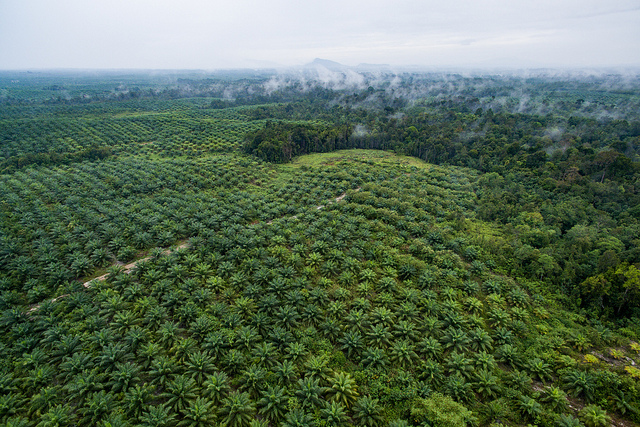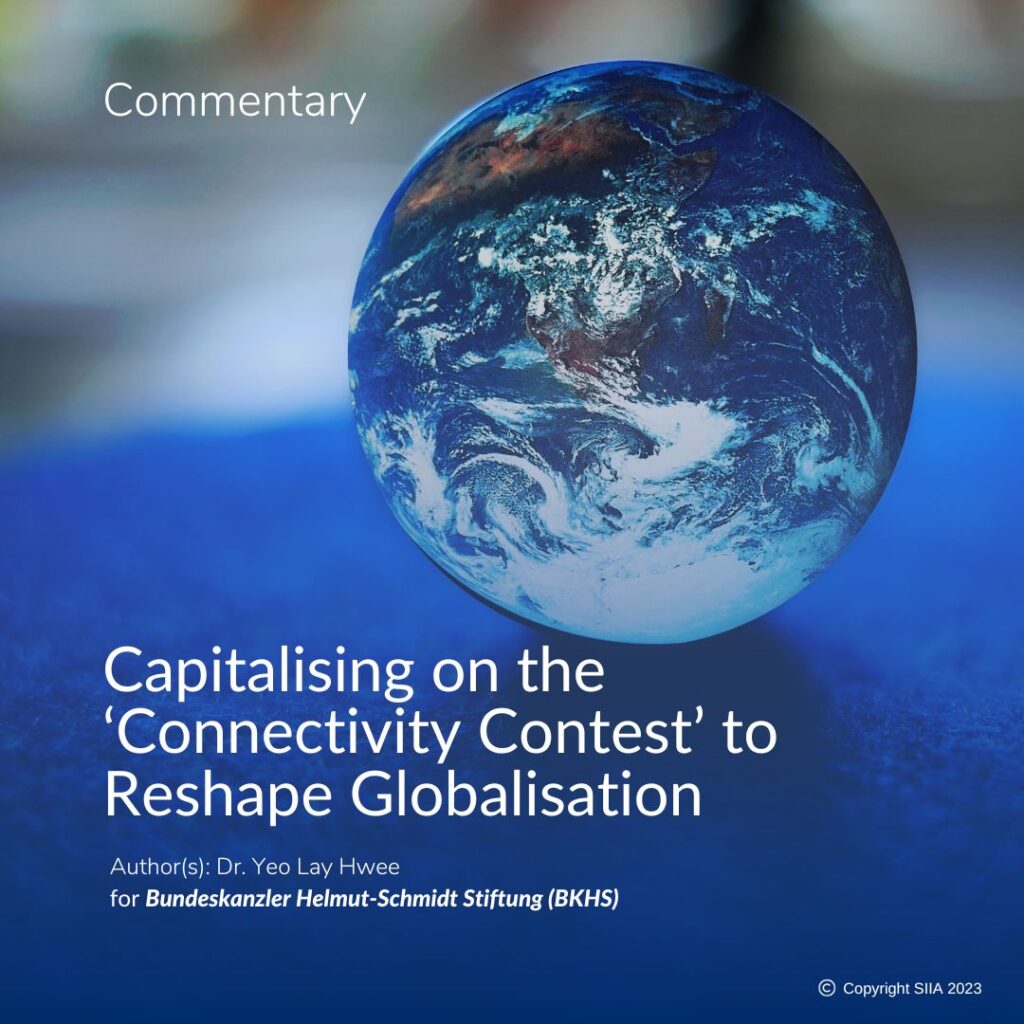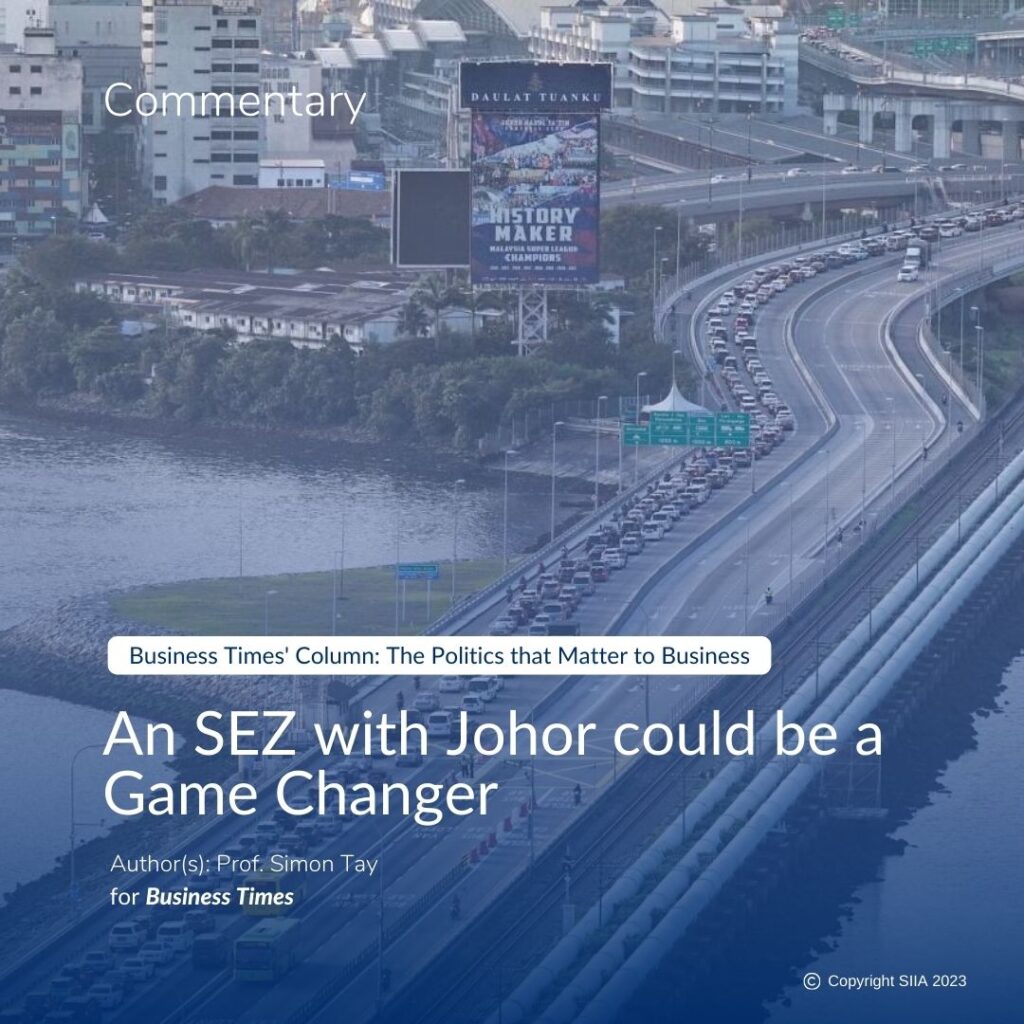By Simon Tay and Liyana Othman
For The Straits Times
As the global community seeks to address environmental and climate change concerns, attention has been increasing about palm oil. In recent months, the European Union passed a directive that disallows commodities like palm oil to be used in biofuels unless deforestation is avoided.
Last month, a New York Times Magazine feature concluded that the US biofuels policy “was a mistake” that caused more harm than good – the demand for palm oil means more forests are razed to grow crops, outweighing the positives of cutting down CO2 emissions by moving away from fossil fuels.
In contrast, the governments and industry bodies of Indonesia and Malaysia – the world’s two largest producers of palm oil – have stoutly defended palm oil. At their April summit this year, Asean leaders too joined to support the efforts of the two countries to address the sustainability of this important resource export.
Could restricting palm oil slow and even stop deforestation? What would be the economic and social impacts, if limits and bans are imposed on palm oil? Is it possible for the industry to grow in tandem with environmental protection – rather than as a trade-off?
WHY IT MATTERS
The palm oil industry is critical to Indonesia and Malaysia. In Indonesia alone, palm oil exports last year hit a record high of nearly US$23 billion (S$31.5 billion), with an estimated 5.9 million people employed in the sector and up to 50 million in non-direct employment.
Singapore too has a considerable stake. While not a producer, Singapore is the trade and finance hub for palm oil, with many of the major companies headquartered and listed here. In past years, a number of palm oil concessions – and others in the pulp and paper industry – have been implicated in the burning that led to the haze.
Singapore has enjoyed blue skies these past three years. That outcome is especially notable this year, which has seen dry conditions across the world, with fires in California and Europe. Indonesia has not been wholly spared, but it is evident that the Indonesian government and the palm oil industry have taken steps to improve their record.
WHAT HAS BEEN DONE
Promises made by Indonesian President Joko Widodo following the 2015 haze crisis have taken root – not only in terms of policy at the HQ level, but also translating to on-the-ground commitments to proactively prevent fires with better management and planning.
Last September, Mr Joko signed a moratorium against any new permits for oil palm plantations. This recognises the need to change from past decades, when large-scale expansion of plantations was associated with fires and deforestation.
Environmental groups have justly applauded the moratorium, although questions arise about implementation.
There are reasons to recognise the improvements. Overall, fire control has sharply improved – in 2015 there were nearly 22,000 hot spots, but just 2,500 last year. On deforestation, the World Resources Institute (WRI) recently reported a 60 per cent drop in primary forest loss last year, compared with the year before. Tropical rainforest continues to be an issue, but the rate has slowed to the lowest recorded rate since 2001.
WHAT NEXT?
The European Union’s Renewable Energy Directive (RED II) has caused tensions and misunderstandings with Indonesia and Malaysia. When members from the Singapore Institute of International Affairs (SIIA) met EU officials in Brussels, the officials explained that the regulations followed public concerns over deforestation. They also pointed out that overall European demand for palm oil continues to increase with its growing use in food stuff and cosmetics.
The EU directive introduces a clause on indirect land use change (ILUC). This seeks to measure the impact on land previously used for agriculture for food or feed being converted to grow crops like oil palm for biofuel. It is true that a change of use from food to fuel can drive up food prices, threaten food security, and increase the rate of deforestation and greenhouse gas emissions.
ILUC can be well-intentioned. However, there is at present no agreed scientific method to calculate indirect land use change. Many palm oil industry observers therefore worry that palm oil remains the clear, if unnamed, target of the new regulations that will kick in by February next year.
While European officials remain open to dialogue and further inputs, there is suspicion among plantation owners as well as industry experts and researchers that protectionism could be a motive, to displace palm oil with European-produced rapeseed oil. As such, the critics say, the science behind the ILUC criteria is tainted with politics and that Brussels’ position is unlikely to change.
There can be unintended outcomes if Europe turns its back on palm oil. The EU is currently the largest buyer of certified sustainable palm oil, and pays a premium for it. Sustainability does not come for free.
Producers say they are stuck between a rock and a hard place – they have to bear these additional costs to pursue sustainability as demanded from the European market, and yet there could be a potential decline in premiums from this very market.
Certification is seen by many as a necessary step in nudging the palm oil industry towards greater sustainability. Yet few other than the EU at present demand and reward certification. If the EU closes its doors, there are concerns that palm oil producers will respond by increasing their supply to markets with low or no such requirements for sustainability.
China and India, for instance, are large and growing markets for palm oil. Yet they remain price-sensitive and are dominated by consumers with low levels of awareness about sustainability.
Without a strong external demand for certification, there is one less factor to move the palm oil industry towards sustainability.
At a recent closed-door dialogue organised in Jakarta, industry watchers expressed fears that the EU decision might stall or even reverse many of the improvements of the past years. They called instead for the European Union and other countries to support the right policies that are emerging in Indonesia and Malaysia.
As the world moves forward on climate change and related issues like deforestation, there will be a need to push and nudge different industries to review and transform their practices. But outright bans and singling out key exports from developing countries will lead to acrimony.
Further steps are needed for inter-regional dialogue and assistance. Otherwise misunderstandings and tensions will grow and then controversy and contention will predominate, rather than good intention and common concern.
About the authors
Simon Tay is chairman and Liyana Othman is senior policy researcher (sustainability) at the Singapore Institute of International Affairs. The SIIA and WRI held a dialogue on palm oil certification recently in Jakarta for officials, industry players, NGOs and researchers.
Source: The Straits Times © Singapore Press Holdings Limited. Reprinted with permission




